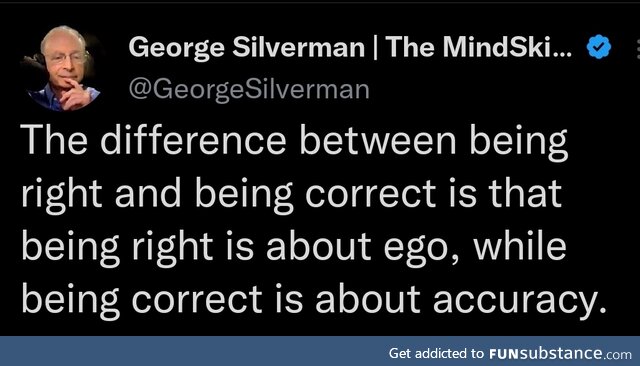Featured Posts

I wish I had a fort

The powerof positive thinking

NASA

Pray for Australia

Take care of each other

She has emerged

My soul feels so much better

I just ordered one. #Just2019HispanicThings

He really wanted his photo at the Halloween party, but was super scared of the spiders

The Only Thing More Contagious Than COVID19 Might Be This Fox's Smile
About
FAQ
Contact
Rules
Terms
Privacy
Feedback
Keyboard Shortcuts:
Previous Post · Next Post · + CTRL Skip Post
Previous Post · Next Post · + CTRL Skip Post
© 2025 FunSubstance · funny and entertaining pictures, memes, gifs & videos.



The be right can either be essentially synonymous to correct- in which case they are the same thing; or it can be more abstract and simply pertain to what is morally good, accepted, or justified.
So in the former example there isn’t a real distinction beyond some nuance between right or correct as right is defined as “correct.”
In the latter example to be correct is simply to be factual where to be right is to be justified- this is especially important where there is no “universal truth” available- for example we might say it is “right” aka “good” to save a person from harm but it may not be a “correct” decision to do so, for example you may be harmed instead or make the situation worse, or save someone who later harms you etc.
Let us also keep in mind that how we define right or true or factual is subjective. Wether we use cultural values or personal values or even outcome to make the distinction- to distinguish means we are proclaiming our own authority on the matter.